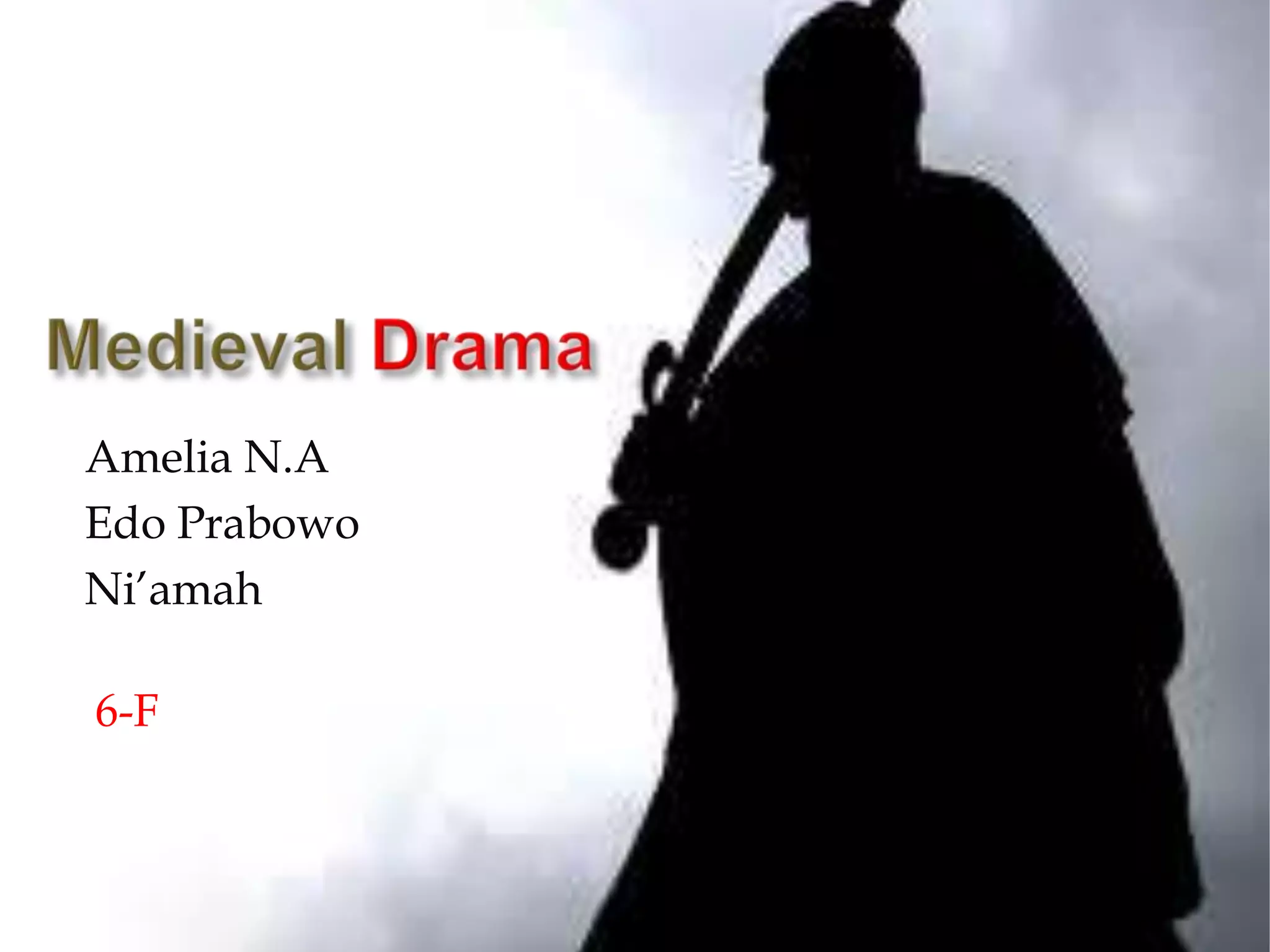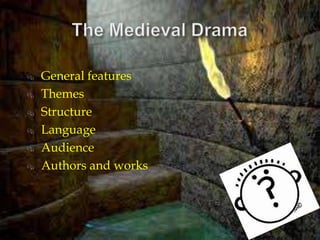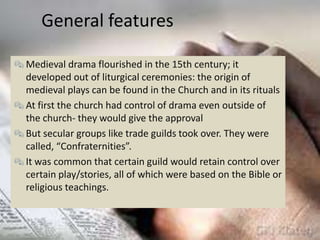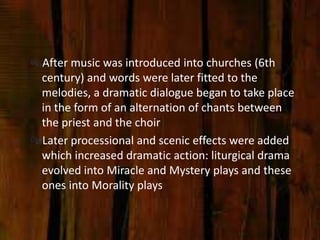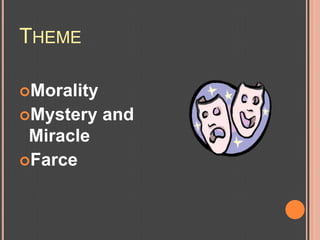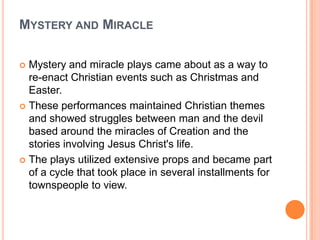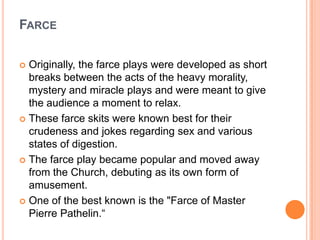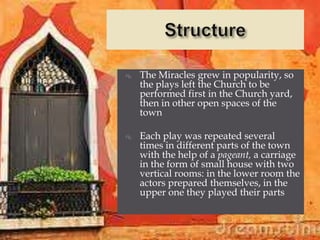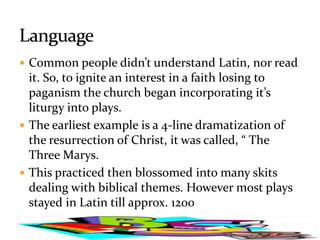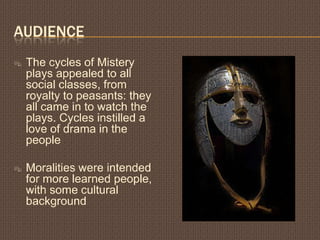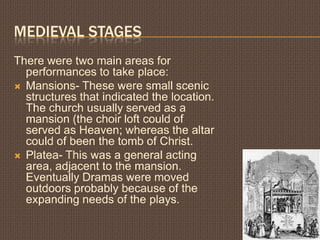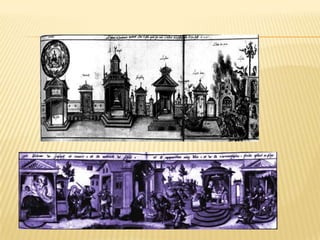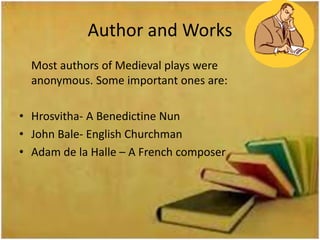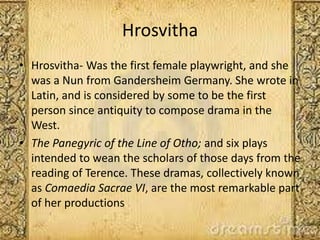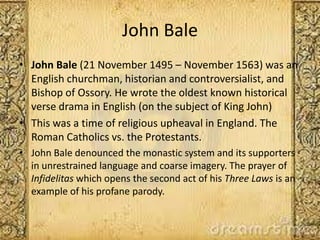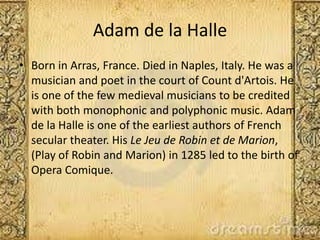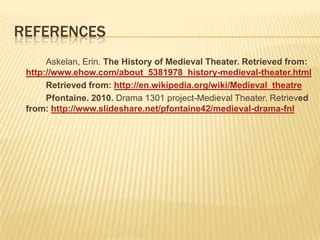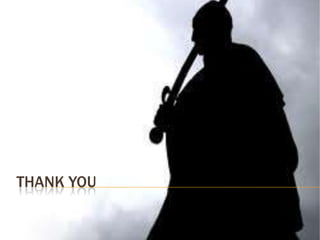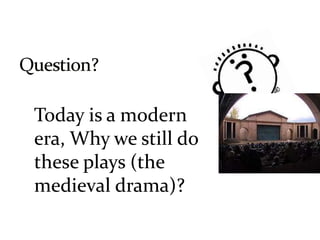There are a few reasons why medieval-style drama and plays are still performed today, even in the modern era:
1. Cultural and historical value. Medieval drama provides insights into the culture, beliefs, and traditions of the Middle Ages. Performing these plays helps keep medieval history and literature alive.
2. Artistic merit. Many medieval plays, like the mystery cycles and morality plays, tell powerful and moving stories in an artistic medium. Their themes of faith, morality, and the human condition still resonate with modern audiences.
3. Educational value. Studying and performing medieval drama can teach students about history, literature, language, theater, music, and more from the Middle Ages. It provides a hands-on
